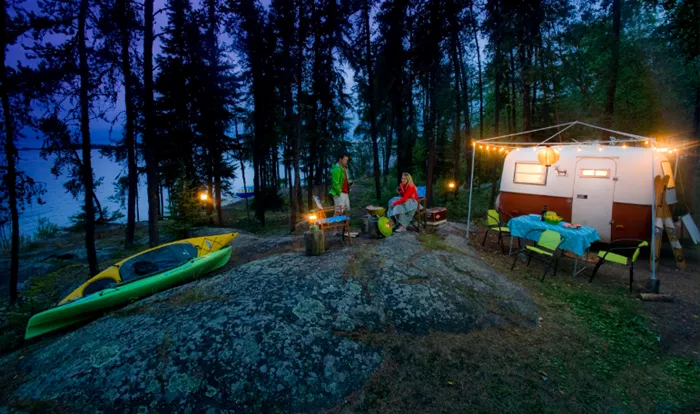Camping is a beloved outdoor activity that allows individuals and families to connect with nature. However, knowing when campgrounds close for the season is crucial for planning your outdoor adventures. This article will provide detailed information on campground closure dates, factors influencing these dates, and tips for enjoying camping throughout the year.
Understanding Campground Seasons
Most campgrounds operate on a seasonal basis. This means they open and close during specific times of the year, primarily influenced by weather conditions, demand, and geographical location. Understanding the typical seasons for campgrounds can help you plan your trips accordingly.
Spring Season
Spring is a popular time for camping. As the weather warms up, campers begin to emerge from winter hibernation. Campgrounds typically open in late March to early May, depending on their location. In warmer climates, some campgrounds may open as early as February.
Summer Season
Summer is peak camping season. Campgrounds are usually at their busiest from late June to mid-August. During this time, many campgrounds offer various activities, including hiking, fishing, and swimming. It’s also the time when most families take their vacations.
Fall Season
As summer fades into fall, campgrounds remain open until late October or early November. The fall colors provide a beautiful backdrop for camping. However, temperatures begin to drop, and many campgrounds start to see reduced visitors as school resumes.
Winter Season
In many regions, campgrounds close for the winter. This typically occurs between late November and early March. However, some campgrounds in warmer climates remain open year-round. Winter camping can also be an option for those looking for solitude in snowy landscapes.
Factors Influencing Campground Closure Dates
Geographic Location
The location of a campground significantly affects its operating season. Campgrounds in northern regions often close earlier than those in southern areas. For example, a campground in Alaska may close by mid-September, while one in Florida could remain open year-round.
Weather Conditions
Weather plays a crucial role in determining when campgrounds close. Harsh winters, heavy snowfall, or severe weather conditions can lead to early closures. Campgrounds must ensure safety for their guests, so they may close if conditions become hazardous.
Demand and Visitor Trends
Campground management often considers visitor trends when deciding on operating dates. If a campground sees a significant drop in visitors in late September, it may choose to close earlier. Conversely, if demand remains high, management might extend the season.
Maintenance and Upkeep
Campgrounds require regular maintenance, including cleaning facilities, repairing trails, and preparing for the next season. Many campgrounds close during the off-season to perform necessary maintenance tasks, ensuring they are ready for the next year.
General Closure Dates by Region
Northern Regions
In northern states, campgrounds usually close in late September to mid-October. Here are some examples:
Maine: Many campgrounds close by mid-October.
Michigan: Campgrounds typically close by the end of September.
Minnesota: Most campgrounds close by mid-October.
Central Regions
In the central United States, closure dates vary but generally fall between late September and early November:
Illinois: Campgrounds often close by mid-October.
Ohio: Many campgrounds close by the end of October.
Colorado: Most campgrounds close by late October.
Southern Regions
In southern states, campgrounds often remain open longer, with many closing between November and March:
Texas: Campgrounds can stay open year-round, but some close in late December.
Florida: Many campgrounds operate year-round.
California: Campgrounds usually remain open, with some closing during the rainy season from November to March.
Special Considerations for Campers
Making Reservations
If you plan to camp during the shoulder seasons (spring and fall), make reservations in advance. Many campgrounds may reduce their capacity during these times. It’s wise to check the campground’s website or contact them directly for specific dates and availability.
Camping in Off-Season
Off-season camping can offer unique experiences. Here are a few tips for enjoying camping during these times:
Prepare for Weather Changes: Temperatures can vary greatly. Be ready for colder nights, rain, or even snow in some regions.
Check for Amenities: Some campgrounds may reduce services in the off-season, such as restroom facilities or water access. Confirm what will be available during your stay.
Enjoy Solitude: Off-season camping can provide a peaceful experience, allowing you to enjoy nature without the crowds.
Year-Round Camping Options
If you enjoy camping throughout the year, consider these options:
RV Parks: Many RV parks remain open year-round, offering amenities like electricity and water.
Cabins and Yurts: Some campgrounds offer cabins or yurts that provide shelter from the elements.
Winter Camping: For the adventurous, winter camping can be a thrilling experience. Ensure you have the right gear and knowledge to camp safely in cold conditions.
Tips for a Successful Camping Trip
Research Campground Policies
Before heading out, research the specific campground policies regarding closure dates and reservations. Websites and social media pages often provide the latest updates.
Prepare for the Unexpected
Weather can change rapidly, especially in the spring and fall. Always pack extra clothing and gear to stay warm and dry.
Leave No Trace
No matter the season, practice Leave No Trace principles. Respect nature by cleaning up after yourself and minimizing your impact on the environment.
Enjoy Local Activities
Many campgrounds are near hiking trails, lakes, or historical sites. Research local attractions to enhance your camping experience.
Conclusion
Understanding when campgrounds close for the season is vital for planning your outdoor adventures. By considering factors such as geographic location, weather conditions, and demand, you can make informed decisions about your camping trips. Whether you prefer summer’s peak season or the tranquility of off-season camping, being prepared ensures a successful and enjoyable experience. So pack your gear, choose your destination, and get ready to connect with nature!
Related topics:
- Best Campsites in the Lake District
- Top 10 Tent Brands in Canada
- What to Do on a Camping Trip with Friends

